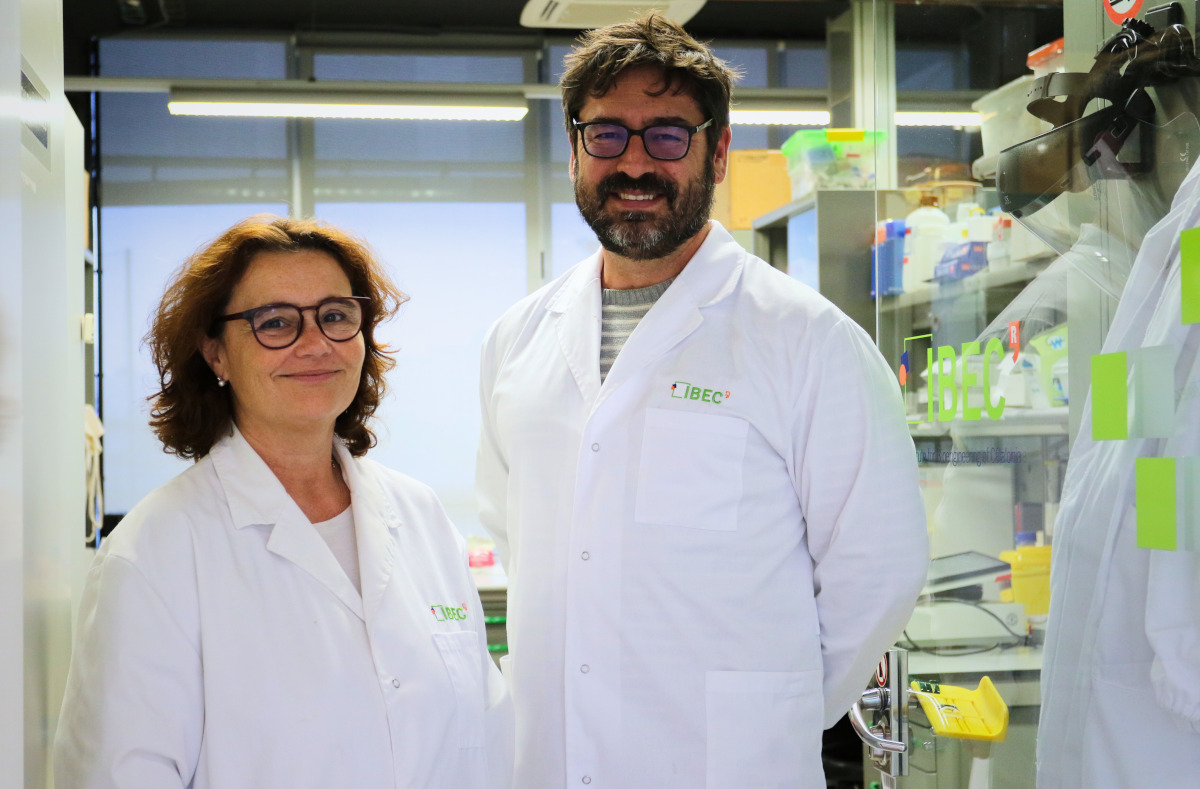Search Results for:
El Español: La tecnología no invasiva que revoluciona la reproducción asistida: Lumiris avanza a paso firme hacia el mercado
El diagnóstico por imagen del IBEC reduce el tiempo y los ciclos de tratamiento de la fecundación in vitro. Su última ronda eleva a seis millones la financiación lograda para … Read more
Biosensors based on olfactory receptors to decipher the human sense of smell
A study led by the Institute for Bioengineering of Catalonia (IBEC) and the CIBER’s Bioengineering, Biomaterials and Nanomedicine (CIBER-BBN) describes a method that mimics the physiological response to smell. The system makes it possible to discriminate between odours with very similar characteristics based on the binding interaction with the receptor, which causes a change in the capacitive response of the receptor. The application of this methodology opens the door to the development of highly selective olfactory biosensors.
Technical Support to Research at the Bioengineering in Reproductive Health Research Group
Ref: TSR_SO//Deadline: 23/12/2024
Innovative 3D printed scaffolds offer new hope for bone healing
Critical bone defects resulting from trauma, tumor resection, or congenital conditions present significant challenges in medical treatment due to high rates of graft failure caused by inadequate blood supply. To address this issue, researchers at the Institute for Bioengineering of Catalonia have developed novel 3D printed scaffolds made from polylactic acid and calcium phosphate. These innovative scaffolds promote blood vessel formation, ensuring better healing and regeneration of bone tissue.
Visiting Researchers and Sabbatical Stays
Professor Javier G. Fernandez Javier G. Fernandez is an Associate Professor and founding member of the Singapore University of Technology and Design (SUTD). He specializes in biomimetic materials and sustainable … Read more
Postdoctoral researcher at the Smart Nano-Bio-Devices Research Group
Ref: PD_SS //Deadline : 06/01/2025
LUMIRIS, the IBEC spin-off that has raised €6 million to transform assisted reproduction
This spin-off from the Institute for Bioengineering of Catalonia has developed a non-invasive technology that analyses the metabolism of human embryos to select the most suitable ones for implantation. This innovation promises to significantly reduce the time and number of treatment cycles required for in vitro fertilisation. The success of LUMIRIS’ technology has led to a new round of investment of €1.5 million, bringing the total to €6 million since the company was founded in 2023.
Postdoctoral Researcher at the Bioengineering in Reproductive Health Research Group
Ref: PR_SO //Deadline : 19/12/2024
8th Mutational Scanning Symposium
8th Mutational Scanning Symposium Mapping and Modelling Variant Effects at Scale Mutational scanning technologies and Multiplex Assays of Variant Effects (MAVEs) are key to variant interpretation and transform our understanding … Read more






